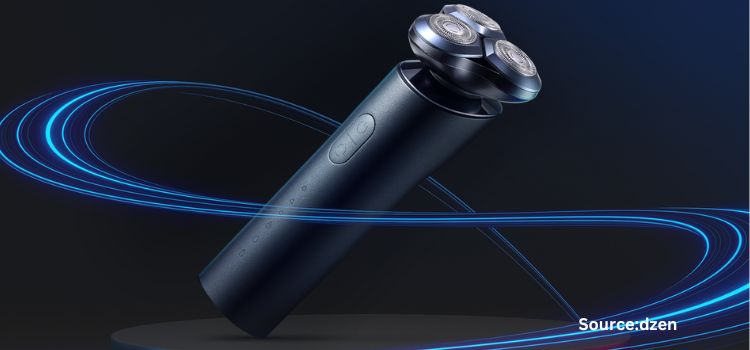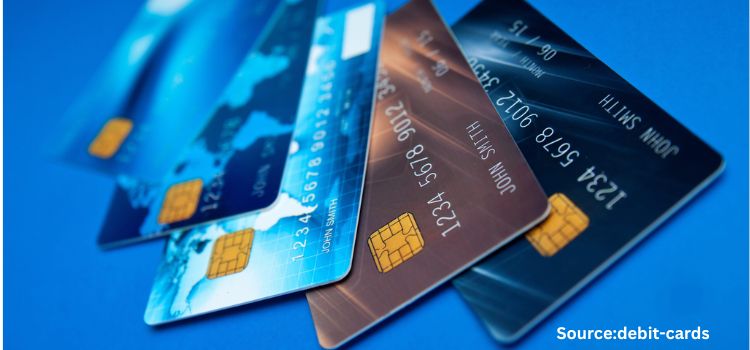
North America Power Bank Market by Battery Capacity (Upto 5000 mAh, 5001-10000 mAh, 10001-20000 mAh, Above 20000 mAh), by Battery Type (Lithium-ion (Li-ion) and Lithium-Polymer (Li-Po)), by Portability (Mini Power Banks, Compact Power Banks, and Larger High Capacity Power Banks), by Charging Technology Type (MagSafe or Wireless Charging Support and Standard Charging Support) and Others– Opportunity Analysis and Industry Forecast, 2023 – 2030
Industry: Retail and Consumer | Publish Date: 14-Feb-2025 | No of Pages: 151 | No. of Tables: 194 | No. of Figures: 159 | Format: PDF | Report Code : RC1463
US Tariff Impact on North America Power Bank Market
Trump Tariffs Are Reshaping Global Business
Market Definition
North America Power Bank Market size was valued at USD 335.08 million in 2023, and is predicted to reach USD 479.22 million by 2030, with a CAGR of 4.8% from 2024 to 2030.
The power bank industry is dedicated to designing, manufacturing, and distributing portable charging devices. These devices, typically equipped with lithium-ion or lithium-polymer batteries, are engineered to store electrical energy and provide on-the-go charging for many portable electronic devices such as smartphones, tablets, digital cameras, and laptops. The industry has evolved rapidly, responding to the increasing reliance on mobile devices and the consequent need for portable power solutions.
The advantages of power banks are numerous and significant. Their primary benefit lies in their portability, allowing users to charge electronic devices without a stationary power source. This feature mainly benefits people who travel frequently or engage in outdoor activities. Moreover, power banks are designed to be compact and lightweight, enhancing their convenience.
Additionally, modern power banks are available in various capacities, enabling them to store enough energy to charge multiple devices or provide several charges to a single device, which is especially useful during extended periods away from traditional power sources. However, the environmental impact of these devices, particularly the production and disposal of lithium batteries, is a concern, necessitating proper recycling and disposal methods to minimize their ecological footprint.
Growing Technological Advancements Fuels Power Bank Market Growth in North America
The market is predominantly influenced by technological advancements, particularly the widespread adoption of 5G technology, creating a demand for more efficient and higher-capacity power banks. The transition towards remote work and increasingly mobile lifestyles further underscores the necessity for portable power solutions, as individuals rely more on devices such as laptops and smartphones throughout their daily activities.
The expansion of the e-commerce sector has also played a pivotal role in the market's growth. Online shopping platforms have simplified access to a diverse array of power bank products, facilitating product comparisons and enabling consumers to make informed purchasing decisions.
Growing Integration of Wearable Devices Boosts demand for Power Banks
The surging popularity of wearable devices has spurred a heightened demand for power banks as a convenient charging solution. With the proliferation of smartwatches, fitness trackers, and other wearable gadgets, consumers seek reliable and portable power sources to keep their devices operational throughout the day.
The compact nature of wearables often limits the size of their built-in batteries, making power banks an essential accessory for users on the go. This increased reliance on wearable technology has consequently fueled the need for accessible and efficient charging solutions, positioning power banks as indispensable companions for users looking to ensure uninterrupted connectivity and functionality of their wearable devices.
Environmental Challenges Restricting Power Bank Market Growth
The growth of the power bank market is being hindered by its environmental impact, primarily stemming from the production and disposal of lithium batteries. The manufacturing process of lithium-ion batteries involves toxic metals and significant energy consumption, leading to greenhouse gas emissions.
Innovations in Battery Technology to Create Future Market Prospects for Power Banks
Growing technological innovations in battery technology, particularly with the development and incorporation of graphene batteries is poised to create ample opportunities for the power bank market in the future. Graphene, known for its superior conductivity exceeding that of copper, is emerging as a revolutionary material in the field of energy storage and transmission. The application of graphene in power bank technology significantly enhances their potential, distinguishing them from traditional lithium-ion counterparts. Graphene-based power banks demonstrate a markedly extended lifespan, a pivotal attribute for consumer electronics.
This technological evolution is not only expected to elevate the performance standards of power banks but also introduces an element of sustainability and cost-effectiveness. The integration of graphene batteries is thus not merely an advancement in battery technology, but also represents a paradigm shift in the power bank market, setting new benchmarks for efficiency, sustainability, and user convenience.
The U.S. Holds the Dominant Market Share in the North America Market
One of the primary drivers is the increasing prevalence of remote working culture. As more people in the U.S. adopt flexible work environments, the need for reliable, portable power sources has escalated. Power banks have become essential for charging devices such as laptops, smartphones, and tablets, especially when traditional power sources are not readily available. Thus, it is expected to create significant growth of the power bank market.
Mexico is Expected to Show Steady Growth in the North America Power Bank Market
The growing urban population in Mexico contributes significantly to the market expansion. With their fast-paced lifestyle and high reliance on technology, urban areas create a natural demand for portable charging solutions. As more people migrate to cities, the dependence on mobile devices increases, thereby boosting the demand for power banks. Urban consumers often seek products supporting their mobile lifestyle, and power banks fit this need ideally.
In response to these trends, several key players in the power bank industry are actively participating in the Mexican market. Companies such as Xiaomi, Anker, and Samsung have recognized the growing demand in Mexico and have introduced a range of power banks suited to different needs and budgets. These companies continuously innovate, offering products with features like fast charging, high battery capacity, and compact designs tailored for the Mexican consumer.
The presence of these market players, coupled with their recent developments, is meeting the current demand and shaping the future of the power banks market in Mexico. Their focus on innovation and understanding consumer needs is ensuring that the market remains dynamic and responsive to the changing technological landscape.
Competitive Landscape
The North America Power Bank industry includes several market players such as Anker Innovations Co. Ltd., Xiaomi Corporation, Samsung Electronics Co., Ltd., Guangdong Oppo Mobile Telecommunications Corp., Ltd. (Realme, OnePlus), Lenovo Group Limited, Zagg Inc. (Mophie), Belkin International, Inc., Ambrane India Pvt Ltd., Baseus, Veger Power Inc.
North America Power Bank Market Key Segments
By Battery Capacity
-
Up to 5,000 mAh
-
5,001 to 10,000 mAh
-
10,001 to 20,000 mAh
-
Above 20,000 mAh
By Battery Type
-
Lithium-Ion (Li-Ion)
-
Lithium-Polymer (Li-Po)
By Portability
-
Mini Power Banks
-
Compact Power Banks
-
Large High Capacity Power Banks
By Charging Technology Type
-
Magsafe or Wireless Charging Support
-
Standard Charging Support
By Number of Ports
-
1 to 2 Ports
-
3 to 5 Ports
-
More than 5 ports
By Design
-
Standard Power Banks
-
Rugged Power Banks
By Display Technology
-
Power Banks with Display Technology
-
Power Banks without Display Technology
By Compatibility
-
Universal Power Banks
-
Device-Specific Power Banks
By Power Output
-
Less than 15W
-
15-65W
-
66 to 200W
-
More than 200W
By Distribution Channel
-
E-commerce or Online
-
Offline
By Region
-
North America
-
U.S.
-
Canada
-
Mexico
-
REPORT SCOPE AND SEGMENTATION:
|
Parameters |
Details |
|
Market Size in 2023 |
USD 335.08 Million |
|
Revenue Forecast in 2030 |
USD 479.22 Million |
|
Growth Rate |
CAGR of 4.8% from 2024 to 2030 |
|
Analysis Period |
2023–2030 |
|
Base Year Considered |
2023 |
|
Forecast Period |
2024–2030 |
|
Market Size Estimation |
Million (USD) |
|
Growth Factors |
|
|
Companies Profiled |
10 |
|
Market Share |
Available for 10 companies |
|
Customization Scope |
Free customization (equivalent up to 80 working hours of analysts) after purchase. Addition or alteration to country, regional, and segment scope. |
|
Pricing and Purchase Options |
Avail customized purchase options to meet your exact research needs. |
KEY PLAYERS
-
Anker Innovations Co. Ltd.
-
Xiaomi Corporation
-
Samsung Electronics Co., Ltd.
-
Guangdong Oppo Mobile Telecommunications Corp., Ltd. (Realme, OnePlus)
-
Lenovo Group Limited
-
Zagg Inc. (Mophie)
-
Belkin International, Inc.
-
Ambrane India Pvt Ltd.
-
Baseus
-
Veger Power Inc.

















 Speak to Our Analyst
Speak to Our Analyst





















